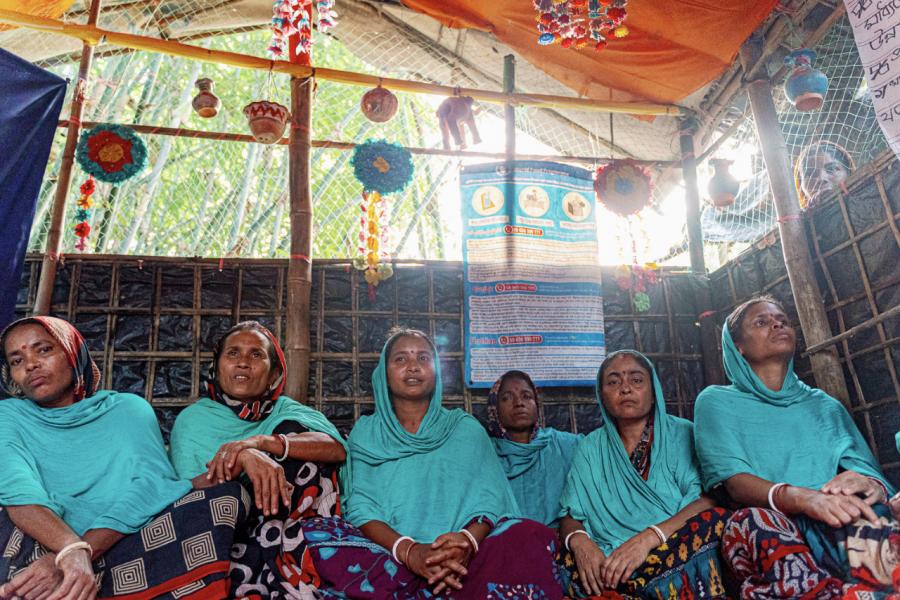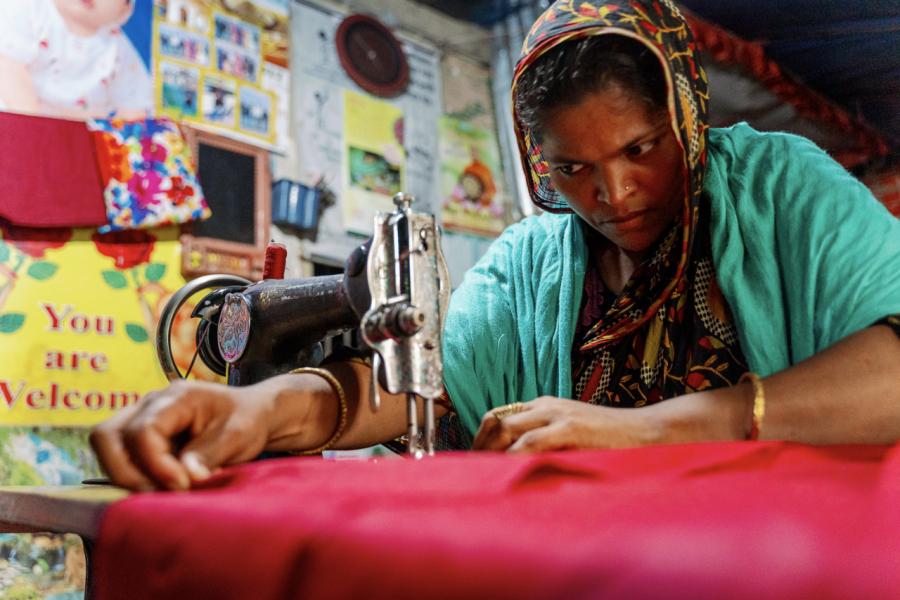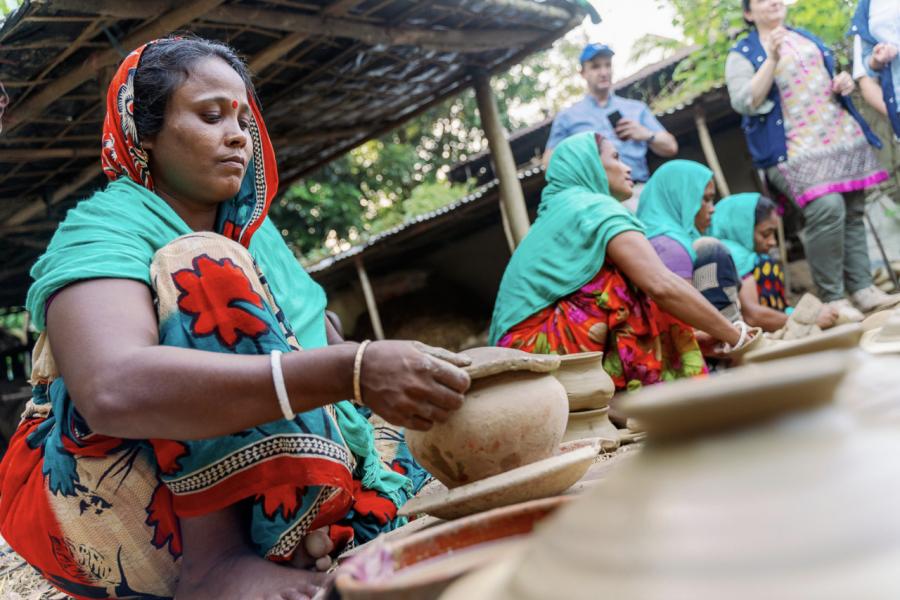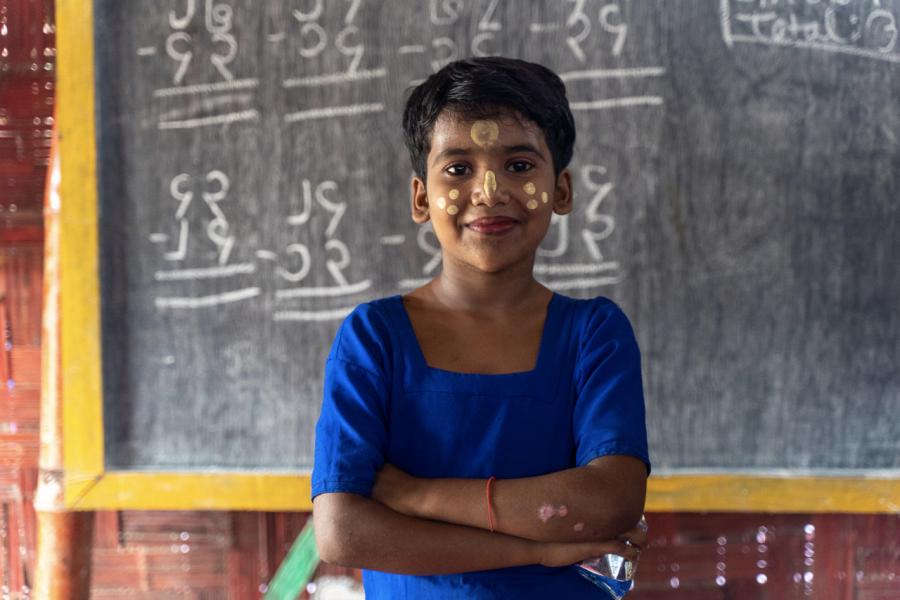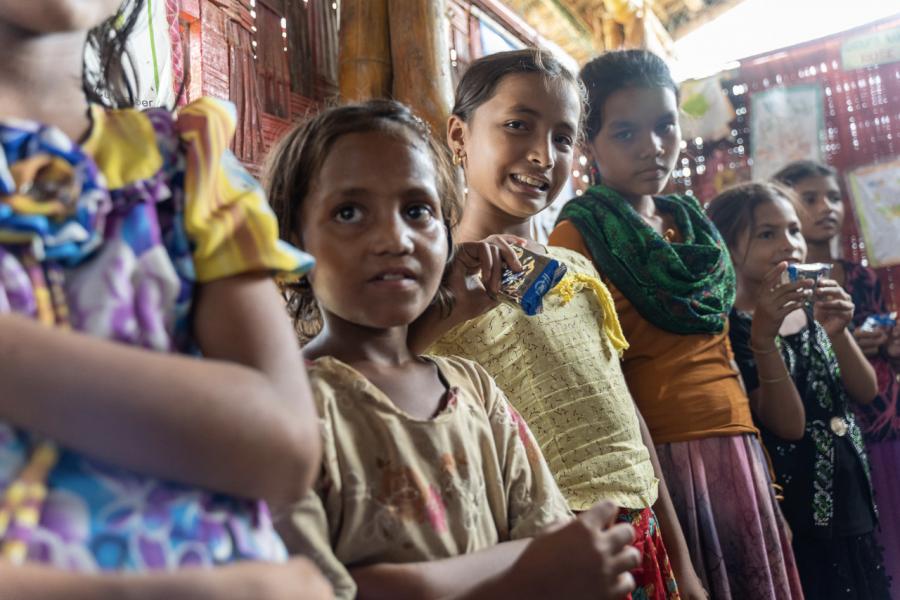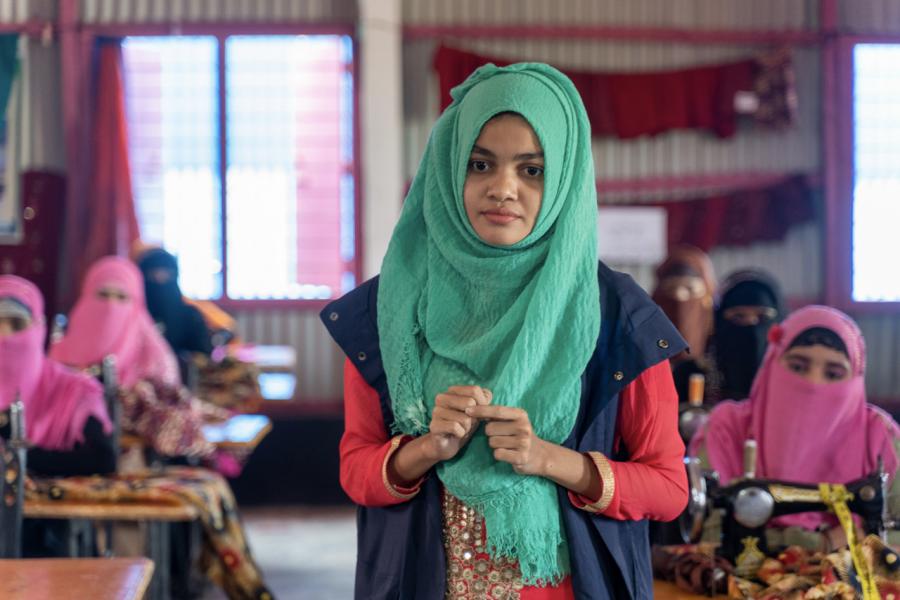For 2019 (19-25 October) the Executive Board Bureau undertook its annual field visit to view WFP operations.
Since 1998, the WFP Executive Board organizes field visits that focus on themes of interest to WFP with the aim of enabling Board members to observe WFP operations and discuss their impact with government and non-government counterparts at all the levels.
For 2019 the Executive Board Bureau decided to undertake its annual field visit to Bangladesh to view WFP’s work, particularly in Cox’s Bazar which is home to some 1.2 million displace Rohingya.
Presently, WFP is providing food and nutrition assistance to over 880,000 in Cox’s Bazar and implementing a range of livelihood programmes including for host communities, with innovative approaches to enhancing resilience and response to climate-related stresses and natural disasters.

Visiting camps in Cox’s Bazar, Board members had the opportunity to observe these operative camps and the e-voucher projects in place. Displaced Rohingya receive food assistance through WFP electronic vouchers (e-vouchers), a modality that offers them choice and dignity in deciding their food needs at 11 e-voucher outlets run by local contractors. Beneficiaries are able to select up to 20 food items from vegetables, fruit, dried fish, etc., previously unavailable to them.
Participants of the field visit had the chance to gain insight on the livelihood projects: initiated in August 2018, self-reliance activities have typically involved a six-month intensive course on life skills training (vegetable gardening, tailoring, handicrafts, mechanical repair, basic literacy and numeracy, etc.) with the aim of helping women and at-risk young males to enhance their resilience and strengthen capacity. In this regard, the WFP-supported learning centres in Cox’s Bazar are providing supplementary literacy, child health and nutrition activities.
Finally, the WFP Executive Board delegation had the great opportunity to meet the State Minister, H.E. Md. Enamur Rahman, of the Ministry of Disaster Management and Relief (MoDMR), a ministry WFP works closely with in-country, within and outside the Rohingya camps; and the Additional Secretary of the Economic Relations Division, Her Excellency Dr. Nahid Rashid, of the Ministry of Finance, to discuss collaboration further.
The field visit has been led by the Head of Delegation, WFP EB President, H.E. Hisham Mohamed Badr.
By Michela Saponaro, Executive Board Website Consultant

